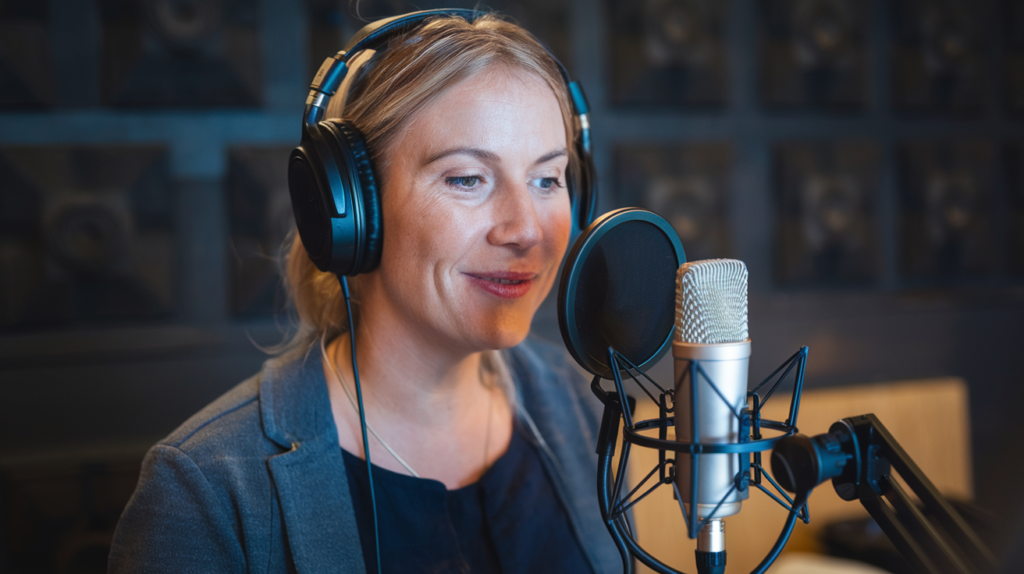Key Takeaways
- Cultural Understanding is Essential: Authentic Maori voiceover translation requires a deep appreciation of Maori culture, traditions, and storytelling methods to connect meaningfully with audiences.
- Choose the Right Voice Talent: Selecting fluent Maori speakers who understand cultural nuances enhances the emotional resonance and authenticity of the voiceover.
- Prioritize Linguistic Accuracy: Collaboration with translators familiar with specific phrases, idioms, and dialects within Maori ensures that translations maintain their integrity and clarity.
- Adapt to Audience Preferences: Tailoring voice talent selection based on audience demographics helps foster emotional connections and engagement with the content.
- Address Common Challenges: Overcoming stereotypes and recognizing dialect variations are crucial for accurate representation in Maori voiceovers. Engaging diverse voices can help dismantle misconceptions.
Have you ever wondered how to capture the true essence of Maori culture in voiceover translation? It’s not just about words; it’s about conveying meaning, emotion, and respect for a rich heritage. As global demand for authentic Maori content grows, understanding best practices for Maori voiceover translation becomes essential.
You want your message to resonate with audiences while honoring the language’s unique nuances. From choosing the right voice talent to ensuring cultural sensitivity, every step matters in creating an impactful translation. Let’s dive into the key strategies that will help you achieve an authentic and engaging Maori voiceover experience.
Understanding Maori Voiceover Translation
Maori voiceover translation involves more than just translating words; it requires a deep understanding of the culture, language, and emotional resonance. Grasping these elements ensures that your content connects meaningfully with audiences.
Importance of Cultural Context
Cultural context plays a crucial role in Maori voiceovers. It’s essential to respect and accurately represent Maori traditions and values within your translations. Consider how stories are told in Maori culture—there’s often a rich tapestry of meanings woven into expressions that might not translate directly into English. Engaging a voice artist familiar with these nuances can enhance authenticity and relatability, making the final product resonate on a deeper level.
Role of Language Nuances
Language nuances significantly impact the effectiveness of voiceovers. Maori contains unique phrases, idioms, and sounds that carry specific meanings or emotions. A skilled voice actor can navigate these subtleties, ensuring the intent behind each word is preserved. Choosing the right voice over talent who understands tonal variations and pronunciation ensures clarity while maintaining cultural integrity, creating an immersive experience for listeners.
Steps for Effective Translation
Effective translation in Maori voiceover requires a thoughtful approach. It’s not just about the words; it’s about conveying meaning and emotion authentically.
Research and Preparation
Research plays a crucial role in ensuring your translation resonates with listeners. Understand the cultural context of the content you’re translating. Dive into Maori traditions, values, and storytelling methods that can influence how your message is perceived. Familiarize yourself with specific phrases or idioms that may hold deeper meanings within the culture. This preparation lays a solid foundation for selecting suitable voice artists who can express these nuances effectively.
Collaboration with Native Speakers
Collaboration with native speakers enhances authenticity in your project. Engage voice actors who are fluent in Maori and familiar with its dialects and cultural references. Their insight ensures that translations maintain their integrity while sounding natural to your audience. By working closely with these professionals, you create an environment where feedback flows freely, leading to more refined voiceovers that truly honor the essence of Maori language and culture.
Best Practices for Maori Voiceover Translation
Creating impactful Maori voiceovers requires attention to detail and respect for the cultural context. By following best practices, you ensure your translations resonate with audiences and reflect the richness of Maori heritage.
Selecting the Right Voice Talent
Choosing the right voice talent is crucial. Look for voice artists who possess not only fluency in Maori but also a deep understanding of its cultural nuances. A skilled voice actor can convey emotions and meanings that mere words might miss. Consider engaging native speakers or those with strong ties to the community, as they’ll naturally embody the essence of the language.
Ensuring Linguistic Accuracy
Linguistic accuracy plays a vital role in successful translations. Ensure your voice artist understands specific phrases, idioms, and local dialects within Maori culture. This familiarity helps maintain authenticity while preventing misinterpretation during recordings. Collaborate with translators who specialize in Maori to ensure that every word aligns perfectly with its intended message.
Adapting to Audience Preferences
Understanding your audience’s preferences enhances engagement. Consider factors such as age, cultural background, and regional differences when selecting a voice actor’s tone and style. Tailoring your approach ensures that listeners connect emotionally with the content while fostering a sense of belonging within their cultural framework.
By focusing on these best practices for Maori voiceover translation, you create an authentic experience that honors both language and culture.
Common Challenges in Translation
Translating Maori voiceovers presents unique challenges that require attention to detail and cultural sensitivity. Understanding these hurdles can enhance the quality of your projects.
Overcoming Stereotypes
Stereotypes about Maori culture can hinder authentic representation in voiceovers. It’s crucial to challenge preconceived notions and ensure that voice talent reflects the true diversity of Maori experiences. Engaging with a variety of voices helps dismantle stereotypes, providing an accurate portrayal of culture. Selecting voice actors who embody different aspects of Maori identity promotes authenticity and resonates more deeply with audiences.
Addressing Dialect Variations
Maori language consists of several dialects, each carrying distinct nuances. Voice artists must be aware of these variations when translating scripts for different regions or communities. Choosing voice over talent familiar with specific dialects ensures clarity and preserves cultural integrity. When addressing dialect differences, consider collaborating with native speakers who can provide insights into regional expressions and pronunciation, enhancing the overall effectiveness of your translation efforts.
Conclusion
Embracing the best practices for Maori voiceover translation is essential for creating authentic and impactful content. By prioritizing cultural sensitivity and understanding the nuances of the language, you can effectively convey the rich stories and emotions embedded in Maori culture.
Selecting voice talent who not only speaks Maori fluently but also appreciates its heritage will enhance your project’s authenticity. Collaborating with native speakers ensures clarity while respecting dialect variations, making your translations resonate deeply with audiences.
Ultimately, your commitment to honoring these principles will lead to a more immersive experience that celebrates Maori traditions and values. This approach not only enriches your content but also fosters a genuine connection with listeners around the world.
Frequently Asked Questions
What is the importance of Maori voiceover translation?
Maori voiceover translation is crucial for preserving the essence of Maori culture. It involves more than just translating words; it requires capturing emotions and cultural nuances to convey rich meanings accurately.
How does cultural context influence Maori voiceovers?
Cultural context plays a vital role in Maori voiceovers as it ensures that traditions, values, and storytelling methods are respected and represented authentically, enhancing audience connection and understanding.
Why should I choose fluent Maori voice artists?
Fluent Maori voice artists bring authenticity to translations by effectively navigating language nuances, specific phrases, and sounds that carry unique meanings essential for an immersive listening experience.
What are best practices for creating impactful Maori voiceovers?
Best practices include selecting knowledgeable voice talent, collaborating with translators familiar with Maori culture, ensuring linguistic accuracy, and adapting tone based on audience preferences to foster emotional connections.
What challenges exist in translating Maori voiceovers?
Common challenges include overcoming stereotypes that misrepresent the culture and addressing dialect variations within the Maori language. Engaging diverse talent helps ensure accurate representation while maintaining cultural integrity.







